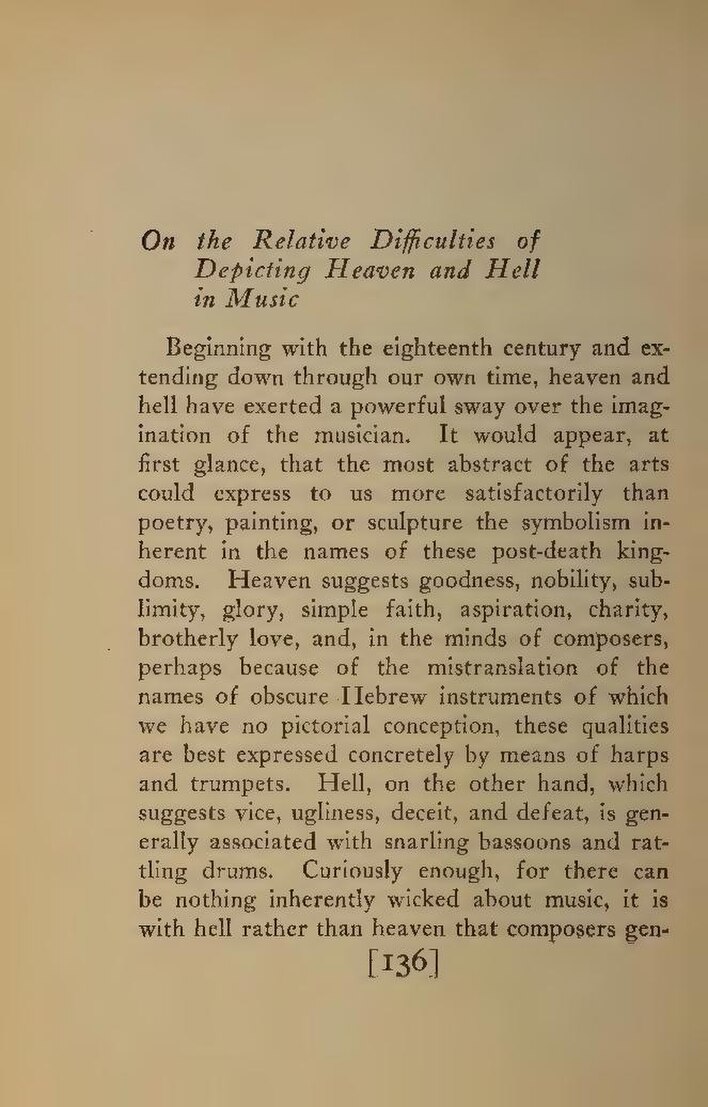Beginning with the eighteenth century and extending down through our own time, heaven and hell have exerted a powerful sway over the imagination of the musician. It would appear, at first glance, that the most abstract of the arts could express to us more satisfactorily than poetry, painting, or sculpture the symbolism inherent in the names of these post-death kingdoms. Heaven suggests goodness, nobility, sublimity, glory, simple faith, aspiration, charity, brotherly love, and, in the minds of composers, perhaps because of the mistranslation of the names of obscure Hebrew instruments of which we have no pictorial conception, these qualities are best expressed concretely by means of harps and trumpets. Hell, on the other hand, which suggests vice, ugliness, deceit, and defeat, is generally associated with snarling bassoons and rattling drums. Curiously enough, for there can be nothing inherently wicked about music, it is with hell rather than heaven that composers gen-
Page:Red (1925).pdf/162
This page has been validated.
On the Relative Difficulties of Depicting Heaven and Hell in Music
